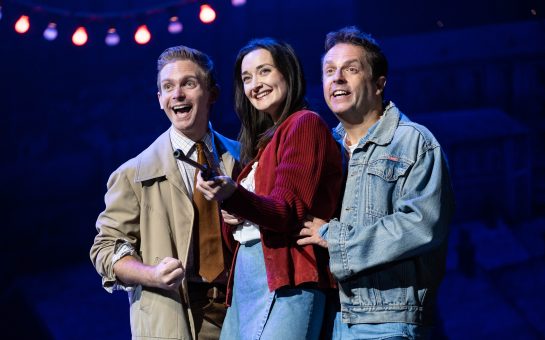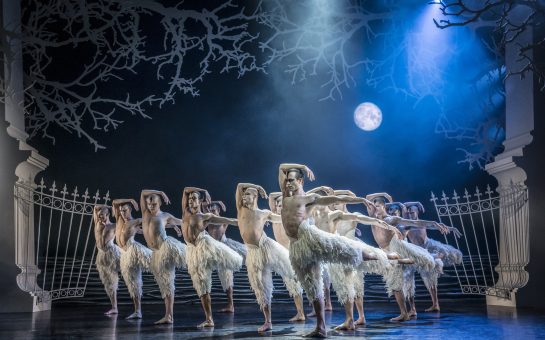The nostalgic theatrical production of Save the Last Dance for Me no doubt stirred memories long forgotten by many members of the audience, of a time when they were ‘teenagers in love’ and growing up in 1960’s Britain.
‘Oversexed, overpaid and over here’ was a common phrase used by many American military men who settled comfortably on US bases across Britain introducing Coca-Cola, Budweiser and of course Rock ‘n’ Roll to the country.
The romance and heartbreak between lead characters 17-year-old Marie and American G.I Curtis in 1963 is a story that many would have experienced themselves in post-war Britain when woman loved and lost soldiers who were eventually shipped back to their home countries when the threat of Cold War calmed.
And it is at this point that the play begins as innocent Luton-teenager Maria and her older sister Jennifer embark on their first holiday without their parents where they meet a dashing young yank named Milton who invites them to a dance at the local air base.
Marie then falls head-over-heels in love with Curtis, a black military man from Tennessee, and the two begin their whirlwind romance, a predictable story but a charming one nevertheless.

Told through a string of 1960s hits, from Elvis Presley’s Suspicion and The Drifters Sweet for my Sweet, along with an impressive cast of talented young performers, director Ben Kenwright has successfully brought juke box music back into the 21st Century.
Each actor made the character their own (sorry to sound like Louis Walsh!), whether it was Lee Honey-Brown’s portrayal of confident cheeky-chap Milton, Verity Jones’ raunchy big sis Jennifer or even lead-characters Kieran McGinn as the loved-up Curtis and Elizabeth Carter’s sweet natured Maria.
Yet all had one thing in common, exceptional voices which made each 1960s classic ever more impressive – and let’s face it, to stamp your own character on an Elvis song is an impressive feat.
However, even with a host of pitch-perfect singing voices it was Jay Perry’s portrayal of Rufus and his outstanding jazz vocals that impressed the most, sure to catapult him to theatrical stardom in the next few years.
With each hip-shaking and body-twisting hit came the soft hum of audience voices quietly singing along while reminiscing about the song they ‘fell in love to’.
Yet the show would not have received such applaud without the talents of the musicians, dragged out of the theatre pit and onto the bright lights of the stage creating their own spin on ‘oldies but goodies’ that had the audience utterly mesmerized.
Ben Kenwright should be proud that his little production of only 15 cast members and musicians were able to bring back long-lost emotions through the power of swinging 60s classics.
For more on this story and many others, follow Mancunian Matters on Twitter and Facebook.



